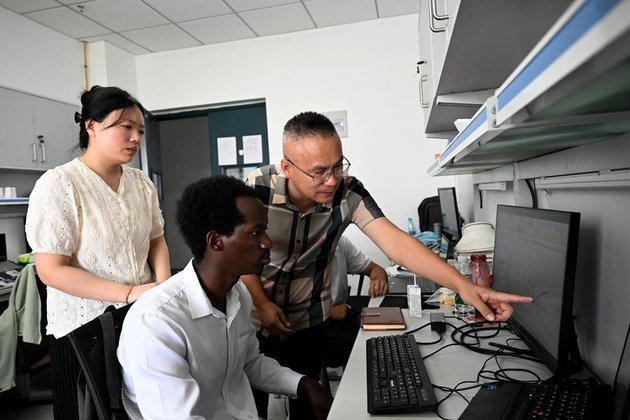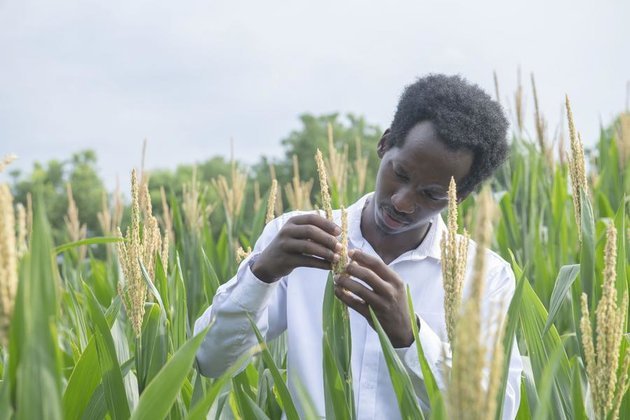
HEFEI, Aug. 16 (Xinhua) — Inspired by the late legendary Chinese scientist Yuan Longping, known as the “father of hybrid rice,” Rwandan Gatera is determined to contribute to solving Africa’s food problem.
“I want to be Africa’s Yuan Longping,” said the 31-year-old doctoral student at Anhui Agricultural University in eastern Anhui Province.
“In China, people have easy access to crops like rice, corn and sweet potato, but crops are expensive in Rwanda,” said Gatera, adding that he aims to develop more heat-resistant varieties for his motherland, a landlocked African country struggling with food shortages.
According to the 2024 edition of United Nations’ “State of Food Security and Nutrition in the World” report, one in five people in Africa may have faced hunger in 2023.

In order to achieve his ambitious goal, Gatera concentrates on learning food crop cultivation techniques in China.
Despite the lingering scorching heat at the beginning of autumn, Gatera remains busy working in a 1,333-square-meter cornfield affiliated to the university, trying to cultivate heat-resistant varieties.
As a vital crop in Rwanda, corn has long suffered from outdated varieties and technologies, which affects its processing as well. Despite these challenges, Gatera’s agricultural dreams remain strong.
In the 1960s, China began researching hybrid rice to address severe food shortages and increase food yields. Yuan, who developed the world’s first hybrid rice in the 1970s, set multiple world records for hybrid rice yields, making significant contributions to food security in China and globally.
Today, China grows more than 17 million hectares of hybrid rice. Dozens of countries around the world have conducted research and demonstration planting of hybrid rice, with an annual planting area of nearly 8 million hectares abroad.
Gatera said that the miracle of hybrid rice motivated him to further his study in China, where cultivation technology is world-leading. China is willing to share with those in need. “I want to make crops more affordable and accessible to every Rwandan, just like Yuan Longping.”

In 2019, Gatera received a scholarship from the Chinese government and came to Anhui Agricultural University for his master’s and doctoral studies.
“Almost every day he immerses himself in laboratories, therefore, he made rapid progress. He can now even guide younger students in research projects,” said Song Youhong, Gatera’s doctoral supervisor, who has mentored over 10 foreign students in the past decade, and most of them are from African countries.
“After completing their studies in China, African students often return to promote food security in their home countries,” Song added.

Talent cultivation is just one aspect of the constant agricultural exchanges between China and African countries.
By the end of 2023, China had set up 24 agricultural demonstration centers in Africa. By introducing over 300 advanced agricultural technologies, the average yield of local crops has increased by 30 percent to 60 percent, benefiting more than 1 million African farming households.
“I want to establish an agricultural research institute in Rwanda to develop high-yield corn varieties and train more agricultural professionals,” Gatera said.
“China’s development shows us that poverty and backwardness can be overcome. Hopefully, one day, Africa will achieve food self-sufficiency and abundant harvests,” Gatera said.

